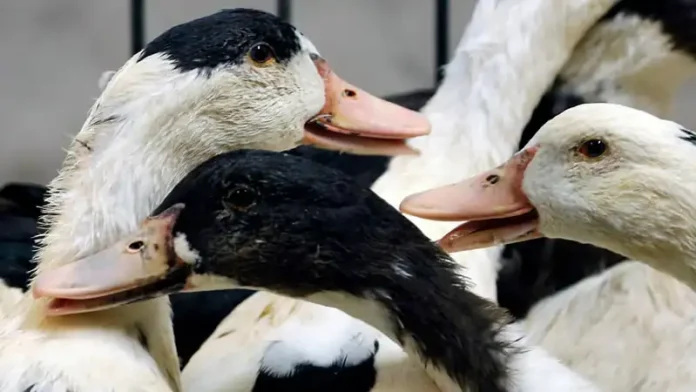
France has officially declared itself free from highly pathogenic avian influenza (HPAI) after more than a month without new outbreaks, marking a significant recovery from the virus that had affected the country’s poultry industry.
The announcement, made by the French Ministry of Agriculture, comes after a series of outbreaks that began in early August 2024.
While France is celebrating the status change, authorities continue to exercise caution due to the ongoing spread of the virus across Europe.
Since August, France had been grappling with 12 farm outbreaks and three cases among backyard poultry.
However, with no new cases reported over the past several weeks, surveillance measures have now been lifted at the affected sites, signaling a marked improvement in the situation.
The country’s poultry sector, particularly the foie gras industry, has faced substantial challenges during the crisis, with restrictions on exports and concerns over production.
With the bird flu-free status, experts anticipate that some countries, which had imposed trade restrictions on French poultry imports, may now lift these measures, helping to revive the industry.
Annie Genevard, acting Minister of Agriculture, credited the success of the vaccination program, which was introduced in October 2023, for helping control the spread of the virus.
The program has been especially focused on vaccinating farm ducks, a species that is particularly vulnerable to HPAI and plays a central role in the production of foie gras.
Genevard emphasized that the vaccination efforts would continue into 2025 to ensure the continued health of the country’s poultry stock.
The situation in France contrasts with growing concerns in the United States, where the Centers for Disease Control and Prevention (CDC) recently confirmed the first severe human case of bird flu.
This case is linked to contact with an infected backyard flock, raising alarm over the potential for the virus to spread among humans.
Furthermore, the virus has been spreading among cattle in the U.S., adding to the complexity of the situation and increasing the pressure on authorities to take more stringent measures to contain its spread.
Despite the challenges in other regions, France’s declaration of being bird flu-free has been welcomed by its poultry industry, which has suffered significant financial losses due to the outbreaks.
The country had faced strict international trade barriers, with many importing nations halting poultry imports following the discovery of the virus in French farms.
Lifting the surveillance restrictions and returning to a bird flu-free status will allow France to rebuild its poultry exports and restore confidence in the safety of its products.
The success of the vaccination strategy in France provides a blueprint for other countries facing similar challenges.
While the risk of further outbreaks remains, the country’s proactive approach to controlling the virus has proven effective, and authorities are committed to continuing vaccination efforts to safeguard the poultry industry and public health.
As France celebrates this important milestone, the focus will now shift to maintaining vigilance in the face of ongoing threats from bird flu, both within Europe and beyond.
The global spread of the virus highlights the need for continued surveillance and prevention efforts to prevent future outbreaks and protect both human and animal health.